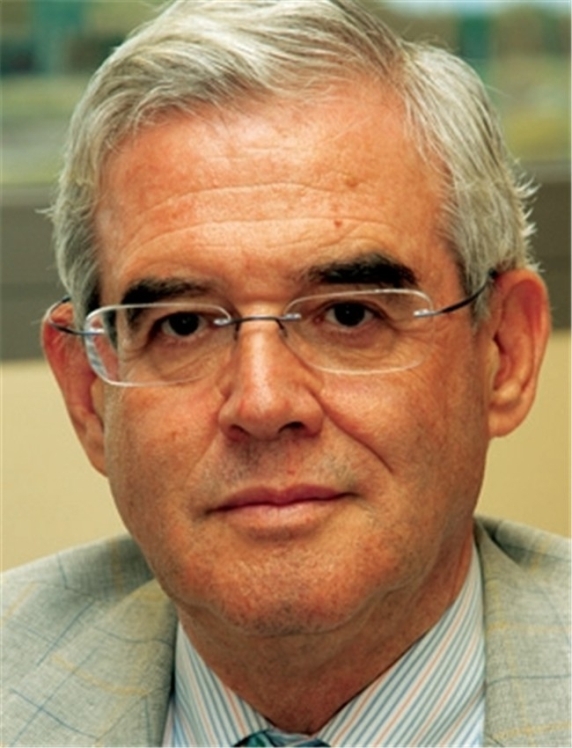In 1906, German psychiatrist Alois Alzheimer described the first case of the disease that bears his name: a woman aged 51, with the name of Auguste Deter, showed signs of memory loss, confusion and spent hours screaming during the night. Today there are 35 million people living with Alzheimer’s, an incurable and terminal disease. The scientist Jesus Avila has spent 20 years studying it with transgenic mice employed to model this dementia and which can be used to test possible drugs. Avila, recipient of the “Santiago Ramón y Cajal” National Research Award, is scientific director of the Biomedical Research Networking Centre of Neurodegenerative Diseases.

Alois Alzheimer described the disease more than a century ago and we still lack drugs to treat it.
The big problem is that it has been a silent disease and by the time it’s diagnosed it’s already too late. The goal now is to prevent it in any way possible. We are seeking very early markers to detect it and stop its development. As the expression goes, “the earlier the better.”
At the moment, although there may be an early diagnosis, there is nothing that can be done.
Attempts are being made. The earliest diagnosis can be made for one type of Alzheimer’s that runs in families, is very uncommon, and which accounts for about 1% of cases. Here we know that the cause is a mutation in any one of three particular genes. We know that if the person with that mutation lives long enough, they will definitely have the illness. There are certain regions in the world, and one of them is Antioch in Colombia, where there are families with the same mutation. They usually have many children, so there are many people affected. What is already being done is to test preventive treatments five to ten years before the onset of the disease to see if they have positive results. The studies began almost two years ago so it’s still very early to say whether the drugs are suitable.
Some experts estimate that 50% of children born in 2014 could reach their 100th birthday. What implications could this aging of the population have?
The big problem is that, in what is known as the First World, people are having fewer children and living longer thanks to improved medicine. If the excellent levels of medical care are maintained, we are going to have a very large population of centennial people. This could lead to quite a problem from the standpoint of Alzheimer’s disease and other neurodegenerative illnesses,. The three major problems in the health status of society are cancer, cardiovascular problems and neurodegeneration. But while cardiovascular and cancer problems are reaching some kind of stationary state, in the case of Alzheimer’s disease the numbers are increasing exponentially. Moreover, the greatest risk is being old. It is now estimated that there are 35 million cases of Alzheimer’s worldwide, but in 2050 there may be 115 million. It’s increasing enormously and we will not have enough caregivers to look after this population. This is the great challenge.
It is said that the likelihood of suffering from Alzheimer’s is very high. What does this mean?
If you’re going to live 80 years, you may have a probability of 30% or more.
It can be said that one in three octogenarians will have Alzheimer’s.
They may have Alzheimer’s or another type of dementia. There are countries where they are trying to get it under control. President Obama is supporting a project to study the brain and one of his goals is to avoid these types of neurodegenerative disorders. In England, David Cameron has initiated another project, as well as Sarkozy in France. In Spain, the person in the State that is most concerned, although this does not seem very usual, is probably Her Majesty the Queen, who is looking for centres for Alzheimer’s patients. Some powerful people are realizing that this is a big problem. We hope that the number of people who can do something for their fellow citizens becomes increasingly larger and that more work is done on this problem.
Associations of those affected say that caring for the sick in Spain represents 24 billion euros. Is enough being invested in research to fight this disease?
Obviously it has a fundamentally human and sociological impact. I don’t know if these figures are correct or not, but it would not surprise me that spending was within that order. While a heart attack is an acute problem, the problem is that Alzheimer’s disease is a chronic problem that can last 20 years, and caring for someone for 20 years is very expensive. For this reason the pharmaceutical companies are trying to do research because they can earn profits. The problem is that, although they have spent a lot of money, we still don’t have a drug that inhibits or stops the disease. We only have palliatives that relieve a few of the symptoms, but over time they do nothing. More money and more resources are required. It’s obvious in every way.
How can you prevent Alzheimer’s with what we know?
In England, they started looking for how they could reduce the number of heart attacks and cardiovascular problems. They have seen that what protects against cardiovascular problems is also protecting against dementia. It’s really two for the price of one. They are at a very initial stage, but there is already data, although we need more cases to confirm it. The lifestyle habits that are good for preventing cardiovascular problems may also be good for dementia. Furthermore, using the mind as much as possible is very important. Walking or doing a light sport can increase the number of new neurons in the adult brain and that can also be good.
Ventana al Conocimiento (Knowledge Window)
Comments on this publication